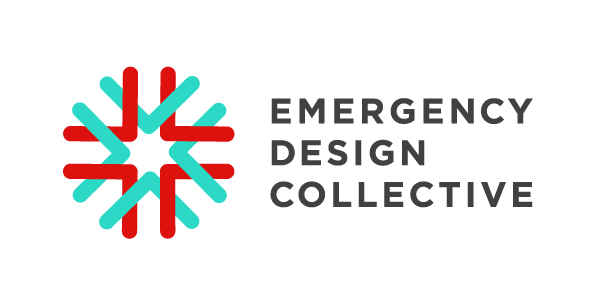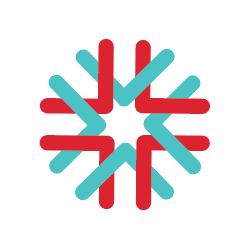
The EDC Community Grand Challenge:
How might we help K-12 students, their teachers, and parents stay healthy, safe and engaged during the pandemic?
A pressing need:
With the COVID-19 pandemic showing no signs of slowing, our national discussion includes the urgent question of schools reopening. But the challenge is more complex than open or closed. It includes the concerns of parents, teachers, medical experts, and kids themselves. And it may mean rethinking everything from how education is delivered to how we feed children. This is a call to the EDC community to think broadly and solve boldly for our kids and communities!
Not sure if a team is right for you? Or maybe you just have some inspiration or ideas to share. Visit our inspiration page and share a headline, link, post, or idea with the EDC community.
About this grand challenge
The EDC is launching a 4 week community design challenge as an opportunity for our community to mobilize and solve around a pressing need arising due to COVID-19.
We’ll share all final submissions on the EDC’s Grand Community Challenge website. And we’ll feature and promote the most impactful solutions!
Form a team
You may already work with a team or have close collaborators. That’s great! If you don’t, don’t worry. Jump into the Community Grand Challenge Slack channel and we’ll help you connect with others.
Join the kickoff
Join the EDC All Hands Zoom on July 28 at 1:30p PT / 4:40p ET for the official kick off and Q&A session. (We’ll record it for those who can’t make it).
Design sprint
Jump right in! You’ve got 4 weeks. We’ve got guidance for a sprint project, or you can use your own favorite design methods. Just keep a focus on the empathy, the end user, and ideas with opportunity to create impact.
Present out
At the end of the sprint, on August 31st, we’ll hold a special share out session for each team to present their research, insights, ideas, and action plan. Each presentation will be showcased on the Community Grand Challenge page on the EDC site.
Sprint Map
Want a map? We know many teams will have experienced leads and members and may not need a map at all. You may even have your own favorite methods. That’s great!
For teams who may be looking for a suggested process, we’ve put together this timeline and a detailed guide to the EDC’s design process. The guide is on the challenge website.
FAQs
Who can participate?
The EDC Community Grand Challenge is open to teams all over the world to enable those in the EDC community to make new connections, be inspired, learn from others and, most importantly, develop solutions to pressing needs related to Education.
How do we form our teams?
We recommend that you form teams of 4-6 members. In choosing your team, make sure it’s well balanced- include someone with research experience, someone who can lead a brainstorm, someone who is a good synthesizer. You will need both dreamers and doers.
Need to find a team or need extra team members? Join the EDC volunteer community on the Team Formation Slack channel.
Learn more about team formations in our Team Resource Guide.
What are the submission requirements?
For your submission, we have provided a deck template for you to share your process with the community. Your deck should be a summary showing how your team arrived at your proposed solution. You may also submit a 3 minute video capturing that information.
Download the Deck Template here.
What are the important dates?
Registration opens July 27th. Become a member of the EDC, join the Community Grand Challenge Slack channel for any questions you might have, and register your team name and members to participate.
Register your team via this form.
Join the Community Grand Challenge Slack. This is where we will post communication regarding the challenge and where you can post if you need help or have questions:
Announcement via All-Hands Zoom meeting on July 28th at 1:30 PT/4:30 ET (recording will be available if you can not participate).
Submission deadline is August 31. Submit your presentation deck and/or 3 minute video per submission requirements.
Present out solutions via Zoom in on September 8th at 1:30 (agenda for 3-minute team presentations will be shared prior).
Each aspect of this challenge is worthy of attention. We invite teams to start with a broad lens and then quickly pick a specific area of opportunity to focus on.
To help, we’re sharing some examples of the scientific literature as well as some recent headlines. We’re also sharing a simple list of the jobs to be done - the many different roles schools preform. Any given job may be a launching off point for your team.
The Science
It all begins with an idea. Maybe you want to launch a business. Maybe you want to turn a hobby into something more. Or maybe you have a creative project to share with the world. Whatever it is, the way you tell your story online can make all the difference.
The COVID slide
“More than 20 million children rely on school breakfast or lunch; surveys now indicate that 1 in 5 mothers with children younger than 12 years old report that their children are going hungry.2…There are major divides by race/ethnicity, geography, and economic class in access to home computers and high-speed internet.3…
The “COVID slide” will likely be greatest among those students who are already at educational and social risk.”
Consideration
HMW ensure children don’t experience a “COVID slide” or hunger regardless of schools’ open statuses?
Disproportionate impact
“The gap in mathematical and literacy skills between children from lower and higher socioeconomic backgrounds often widens during school holiday periods. The summer holiday in most American schools is estimated to contribute to a loss in academic achievement equivalent to one month of education for children with low socioeconomic status; however, this effect is not observed for children with higher socioeconomic status.
”
Consideration
HMW ensure children of low socioeconomic status are not disproportionately effected by time away from the classroom?
Mental health
“School routines are important coping mechanisms for young people with mental health issues. When schools are closed, they lose an anchor in life and their symptoms could relapse. “Going to school had been a struggle for [some children with depression] prior to the pandemic, but at least they had school routines to stick with””
Consideration
HMW help young people maintain routines and structures that support positive mental health?
Looking Out
Here is a small sample of articles from recent headlines.
The Safety of Teachers
“Every day when I walk into work as a public-school teacher, I am prepared to take a bullet to save a child. In the age of school shootings, that’s what the job requires. But asking me to return to the classroom amid a pandemic and expose myself and my family to Covid-19 is like asking me to take that bullet home to my own family.
I won’t do it, and you shouldn’t want me to.”
Consideration
Teachers feel a risk to personal safety. With COVID the risk extends to their families.
HMW minimize the risk to personal safety of teachers and school workers?
Impact on parents
“Thirteen percent of U.S. parents had to quit a job or reduce their working hours due to a lack of child care, according to a survey of 2,557 working parents conducted by Northeastern University from May 10 to June 22. The survey found parents were losing an average of eight hours of work a week — the equivalent of a full day — because they had to address their kids’ needs.”
Consideration
HMW support working parents?
HMW imagine a new form child care?
HMW imagine a world with universal child care?
Schools are much more than just about education, they perform a number of important jobs for students and their families. In what ways might we reimagine how the systems, users, actors, and engaged to fulfill these jobs during the pandemic?
EDUCATION
Perhaps the most primary job of a school is providing education. This often takes the form of classroom learning, homework, and small group activities.
SOCALIZATION
Schools are a place where children hang out with other kids - it's often how we form our earliest friendships, develop new interests, and learn how to get along with others.
PLAYTIME
From recess to organized sports, schools are places kids get some exercise and develop a different set of motor skills in the process. For some kids, these activities go on to provide lifelong interests and even educational opportunities.
SAFETY
Schools are, generally, safe spaces. For many children, schools may be the safest buildings kids spend time in. They provide good shelter and adult supervision.
FOOD
For children of families with fewer resources, school meals may be the most nutritious and filling meals they have.
What makes a successful project?
There are several ways a project will be successful in this Community Grand Challenge.
Were you engaged and energized? First, did you and your team feel engaged in the challenge? Did working on it feel energizing? If so, that’s a success!
The EDC will be looking for:
A strong connection to the end user and their feelings, needs, and experiences
Clear and powerful insights - new ways to frame the challenge from the users’ perspective
Actionable opportunities - new ideas to solve for new insights
Prototypes or tests of your ideas and how feedback with users helped you evolve the idea
Consideration of implementation - who can help and how will your solution get used?
Tools you can use
We’ve created a community challenge guide. It has suggestions for each phase from planning to prototyping to help you form a team and get moving quickly. Lastly, there is a template for your final deck you can consider using to present your designs.






















